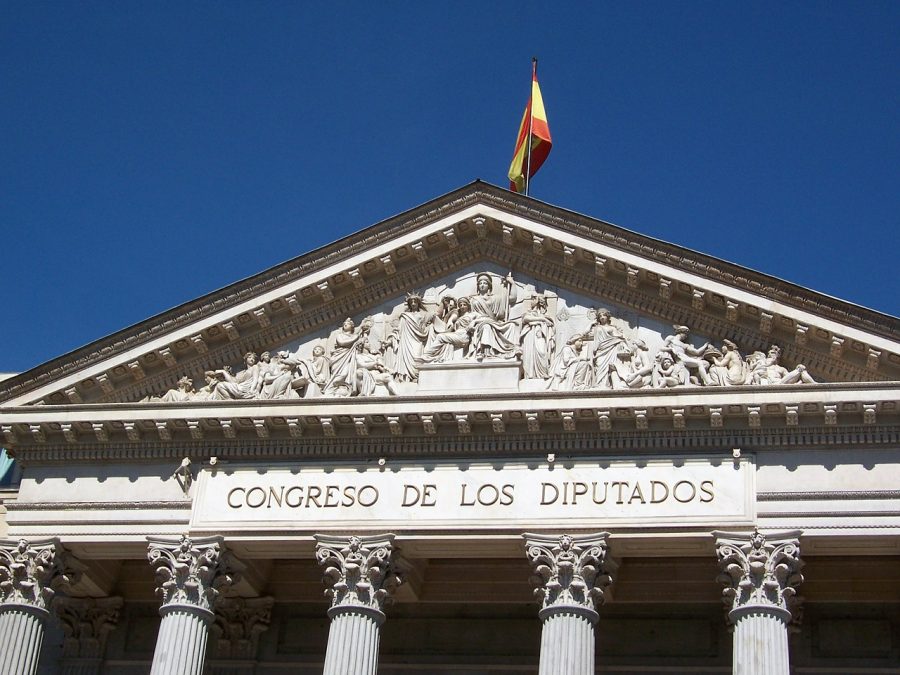The remodelled government of Spain will start on Monday 12 July with the swearing in of 7 new ministers and 3 ministers who change portfolios. All five ministers from coalition partner Unidas Podemos remain in place.
The remodelling comes at a time when Spain’s government needs a new boost after a sixteen months due to the covid pandemic. The economy needs to be stimulated and with the changes, according to Sánchez, the capacity to do so improves. Furthermore, the aim is to reduce the average age of government – from 55 to 50 years – and to appoint more women as ministers. There will now be 14. Of the 7 new faces, 5 are women. Also, there are now 3 vice presidencies instead of 4.
The new ministers will take possession of their portfolios on Monday. Their first council of ministers is on Tuesday.
Who is new?
Félix Bólanos (PSOE) – Minister of the Presidency, Relations with Parliament and Democratic Memory
Pilar Llop (PSOE) – Minister of Justice (was a judge specialising in gender violence).
Raquel Sánchez (PSOE) – Minister of Transport, Mobility and Urban Agenda (was mayor of Gavà for PSC in Catalonia).
Pilar Alegría (PSOE) – Minister of Education and Vocational Training (was a deputy of the government in Aragón).
Diana Morant (PSOE) – Science and Innovation (was mayor of Gandía and engineer Telecommunications).
Isabel Rodríguez (PSOE) – Territorial Politician and Government Spokesperson (was socialist mayor of Puertollano).
José Manuel Albares (PSOE) – Minister of Foreign Affairs, European Union and Cooperation (was Ambassador of Spain in Paris).
Óscar López (PSOE) – Director of the Cabinet of the Presidency (was president of the state hotel chain Paradores)
Who is leaving?
Carmen Calvo (PSOE) – First Vice President and Minister of the Presidency
Juan Carlos Campo Moreno (PSOE) – Minister of Justice
Arantxa González Laya (PSOE) – Minister of Foreign Affairs, European Union and Cooperation
Pedro Duque (PSOE) – Minister of Science and Innovation
José Luis Avalos (PSOE) – Minister of Transport, Mobility and Urban Agenda
José M. Rodríguez Uribes (PSOE) – Minister of Culture and Sports
Isabel Celaá Diéguez (PSOE) – Minister of Education and Vocational Training
Iván Redondo (PSOE) – Director of the Cabinet of the Presidency
Who stays?
Nadia Calviño (PSOE) – First Vice President and Minister of Economy (Calviño was Second Vice President)
Yolanda Díaz Pérez (UP) – Second Vice President (was third) and Minister of Labor and Social Economy
Teresa Ribera Rodríguez (PSOE) – Third Vice President (was fourth) and Minister of Ecological Transition and Demographic Challenge
Fernando Grande-Marlaska (PSOE) – Minister of the Interior
Margarita Robles (PSOE) – Secretary of Defense
Miquel Iceta (PSOE) – Minister of Culture and Sports (was Minister of Territorial Politics and Public Function)
Reyes Maroto Illera (PSOE) – Minister of Industry, Commerce and Tourism
Irene Montero Gil (UP) – Minister of Equality
Alberto Garzón Espinosa (UP) – Minister of Consumer Affairs
Ione Belarra Uteaga (UP) – Minister of Social Rights and 2030 Agenda
Manuel Castells (UP) – Minister of Universities
María Jesús Montero (PSOE)- Minister of Taxation (now also Public Position)
José Luis Escrivá (PSOE) – Minister of Inclusion, Social Security and Migration
Luis Planas Puchades (PSOE) – Minister of Agriculture, Fisheries and Food
Carolina Darias (PSOE) – Minister of Health
Criticism of opposition
The People’s Party (PP), Vox and Ciudadanos criticised the changes, describing them as a mere aesthetic retouch. They believe the main problem facing the executive is Pedro Sánchez himself. “Who should go is himself,” said PP leader Pablo Casado in a message on his Twitter account.
Third government crisis
This is the third crisis since the start of the coalition government between PSOE and Unidas Podemos – with 17 ministries for the socialists and five for the ‘purple group’ – although so far it has been adjustments forced by electoral processes.
At the beginning of this year, Carolina Darias took over the Health portfolio following the departure of Salvador Illa to the regional government of Catalonia. With his departure, Miquel Iceta joined with the Territorial Policy and Public Function portfolio.
The second crisis came after Pablo Iglesias left at the end of March to run for president of the Community of Madrid. Ione Belarra took on the portfolio of Social Rights and Agenda 2030, Yolanda Díaz became third vice president and Nadia Calviño was promoted to second vice president.


